Davanagere, a bustling city in Karnataka, is emerging as a significant player in the Indian saree manufacturing industry. Known for its rich textile heritage and skilled artisans, Davanagere produces a diverse range of sarees, each with unique characteristics and appeal. This guide provides an in-depth look at various types of sarees manufactured in Davanagere, including Katan, Alfi, Patola, Khaddi, Mashru, Tussar, Kora, and Georgette sarees. We will explore each type in detail, including their history, manufacturing process, and market demand.
Overview of Davanagere’s Saree Industry
Davanagere’s saree industry is renowned for its craftsmanship and quality. The city’s textile heritage dates back several decades, with artisans using traditional techniques to create beautiful sarees. The industry has evolved to include a variety of saree types, each catering to different tastes and occasions. Manufacturers in Davanagere, such as Climax Saree, play a crucial role in this industry, offering high-quality products that reflect the city’s rich textile tradition.
Types of Sarees Manufactured in Davanagere
1. Katan Sarees
Description: Katan sarees are made from pure silk threads and are known for their luxurious texture and elegant appearance. The term “Katan” refers to the weaving process, which involves using fine silk yarns.
History: Katan silk sarees have been a part of Indian tradition for centuries, often associated with royalty and special occasions. They are renowned for their intricate designs and high-quality silk.
Manufacturing Process: The process begins with dyeing the silk threads. These threads are then woven on handlooms to create the saree. The patterns are often elaborate, featuring motifs like flowers and traditional designs.
Market Demand: Katan sarees are highly sought after for weddings and formal events due to their luxurious feel and elegant appearance.
Average Price: Prices for Katan sarees can range from INR 15,000 to INR 50,000, depending on the intricacy of the design and the quality of the silk.
2. Alfi Sarees
Description: Alfi sarees are known for their durability and affordability. They are made from a type of fabric that combines silk and synthetic fibers, making them less expensive than pure silk sarees.
History: Alfi sarees have gained popularity in recent years due to their affordability and versatility. They are commonly worn for everyday occasions and are appreciated for their ease of maintenance.
Manufacturing Process: The manufacturing process involves blending silk with synthetic fibers and then weaving the fabric on power looms. The designs are often simpler compared to pure silk sarees.
Market Demand: Alfi sarees are popular among women looking for stylish yet budget-friendly options. They are often chosen for casual wear and semi-formal occasions.
Average Price: Alfi sarees typically range from INR 2,000 to INR 5,000.
3. Patola Sarees
Description: Patola sarees are known for their intricate patterns and vibrant colors. Originally from Gujarat, these sarees are now produced in Davanagere using similar weaving techniques.
History: Patola sarees have a rich history, dating back to ancient India. They are famous for their double ikat weaving technique, which involves dyeing both the warp and weft threads before weaving.
Manufacturing Process: The process involves a complex weaving technique where the threads are dyed before weaving, creating intricate patterns. This technique requires skilled artisans and a significant amount of time.
Market Demand: Patola sarees are highly valued for their craftsmanship and are often worn for special occasions and festivals.
Average Price: Patola sarees can range from INR 20,000 to INR 1,00,000, depending on the complexity of the design.
4. Khaddi Sarees
Description: Khaddi sarees are made from hand-spun and hand-woven fabric. They are known for their textured feel and traditional appeal.
History: Khaddi has a long history in India, associated with the freedom movement and the promotion of indigenous textiles. Khaddi sarees are valued for their hand-crafted nature and cultural significance.
Manufacturing Process: The manufacturing involves spinning the yarn by hand and weaving it on traditional looms. The process is labor-intensive and requires skilled artisans.
Market Demand: Khaddi sarees are appreciated for their unique texture and are often chosen for their cultural and historical significance.
Average Price: Prices for Khaddi sarees range from INR 3,000 to INR 10,000.
5. Mashru Sarees
Description: Mashru sarees are a blend of silk and cotton, known for their soft texture and lustrous finish. They originated in Gujarat but are now also manufactured in Davanagere.
History: Mashru fabric has historical significance, as it was traditionally worn by royalty and the elite. The blend of silk and cotton makes it suitable for both formal and casual wear.
Manufacturing Process: The process involves weaving silk and cotton threads together to create a fabric that combines the best qualities of both materials. The designs are often vibrant and rich in color.
Market Demand: Mashru sarees are popular for their comfort and elegance. They are often worn for both formal and casual occasions.
Average Price: Mashru sarees generally range from INR 7,000 to INR 20,000.
6. Tussar Sarees
Description: Tussar sarees are made from Tussar silk, which is known for its unique texture and natural golden hue. They are often adorned with intricate embroidery.
History: Tussar silk has been used in Indian textiles for centuries. It is prized for its natural sheen and texture, which gives the sarees a distinctive appearance.
Manufacturing Process: Tussar silk is collected from wild silkworms and then woven into fabric. The process involves dyeing the silk and weaving it on traditional looms.
Market Demand: Tussar sarees are highly valued for their unique texture and natural sheen. They are often chosen for special occasions and festivals.
Average Price: Tussar sarees typically range from INR 10,000 to INR 30,000.
7. Kora Sarees
Description: Kora sarees are made from Kora silk, a type of raw silk that has a slightly coarse texture. They are known for their simplicity and elegance.
History: Kora silk has been used in traditional Indian textiles for centuries. Kora sarees are appreciated for their understated beauty and durability.
Manufacturing Process: The process involves weaving raw silk threads to create a fabric with a slightly coarse texture. The sarees are often adorned with minimalistic designs.
Market Demand: Kora sarees are popular for their simplicity and versatility. They are often worn for both formal and casual occasions.
Average Price: Kora sarees usually range from INR 4,000 to INR 12,000.
8. Georgette Sarees
Description: Georgette sarees are made from Georgette fabric, which is known for its lightweight and flowy nature. They are often chosen for their comfort and ease of wear.
History: Georgette fabric was named after a French designer, and it has become popular in Indian textiles due to its drape and versatility.
Manufacturing Process: Georgette fabric is created by weaving synthetic fibers to produce a lightweight and slightly crinkled texture. The sarees are often adorned with vibrant prints and designs.
Market Demand: Georgette sarees are popular for their comfort and stylish appearance. They are often worn for parties, weddings, and other special events.
Average Price: Georgette sarees generally range from INR 3,000 to INR 8,000.
9. Kora Silk Sarees
Description: Kora silk sarees are similar to Kora sarees but specifically made from Kora silk, which is known for its natural texture and sheen.
History: Kora silk has been used in Indian textiles for a long time, and Kora silk sarees are valued for their elegant appearance and durability.
Manufacturing Process: The process involves weaving Kora silk threads into fabric. The sarees are often designed with minimalistic patterns and are prized for their natural sheen.
Market Demand: Kora silk sarees are popular for their elegance and versatility. They are suitable for both formal and casual occasions.
Average Price: Kora silk sarees typically range from INR 5,000 to INR 15,000.
10. Khaddi Sarees
Description: Khaddi sarees are made from hand-spun and hand-woven fabric, known for their traditional appeal and unique texture.
History: Khaddi has a significant place in Indian textile history, associated with the promotion of indigenous fabrics and the freedom movement.
Manufacturing Process: The process involves spinning the yarn by hand and weaving it on traditional looms. The fabric is then dyed and finished.
Market Demand: Khaddi sarees are appreciated for their cultural significance and are often chosen for their uniqueness and craftsmanship.
Average Price: Khaddi sarees generally range from INR 3,000 to INR 10,000.
Climax Saree: Your Source for High-Quality Sarees in Davanagere
At Climax Saree, we are committed to providing the finest sarees manufactured in Davanagere. Our range includes Katan, Alfi, Patola, Khaddi, Mashru, Tussar, Kora, and Georgette sarees, each crafted with care and precision. Our team of skilled artisans ensures that every saree reflects the rich heritage and quality that Davanagere is known for.
FAQs
Q1: What makes Katan sarees special? A: Katan sarees are made from pure silk and are known for their luxurious texture and intricate designs. They are often chosen for weddings and special occasions due to their elegant appearance.
Q2: How are Alfi sarees different from other sarees? A: Alfi sarees are made from a blend of silk and synthetic fibers, making them more affordable and durable compared to pure silk sarees. They are ideal for everyday wear and casual occasions.
Q3: What is the significance of Patola sarees? A: Patola sarees are known for their double ikat weaving technique and intricate patterns. They have a rich history and are often worn for special occasions and festivals.
Q4: Why are Khaddi sarees considered valuable? A: Khaddi sarees are made from hand-spun and hand-woven fabric, reflecting traditional craftsmanship and cultural significance. They are appreciated for their unique texture and historical value.
Q5: What are Mashru sarees known for? A: Mashru sarees are a blend of silk and cotton, offering a soft texture and luxurious finish. They are versatile and suitable for both formal and casual wear.
Q6: How is Tussar silk different from other silks? A: Tussar silk is known for its unique texture and natural golden hue. It is collected from wild silkworms and is often adorned with intricate embroidery.
Q7: What is Kora silk and how is it used? A: Kora silk is a type of raw silk with a slightly coarse texture. It is used to make sarees that are simple yet elegant, suitable for various occasions.
Q8: Why are Georgette sarees popular? A: Georgette sarees are lightweight and flowy, making them comfortable and easy to wear. They are popular for parties and special events due to their stylish appearance.
Q9: How does Climax Saree ensure quality? A: Climax Saree ensures quality by using premium materials and skilled artisans. We follow traditional manufacturing techniques and conduct rigorous quality checks to deliver the best products.
Conclusion
Davanagere’s saree industry, with its rich heritage and skilled craftsmanship, offers a diverse range of sarees to cater to various preferences and occasions. Whether you are looking for the luxurious feel of Katan sarees, the affordability of Alfi sarees, or the traditional appeal of Khaddi sarees, Davanagere has something for everyone. Climax Saree is proud to be a part of this vibrant industry, offering high-quality sarees that reflect the city’s rich textile tradition.


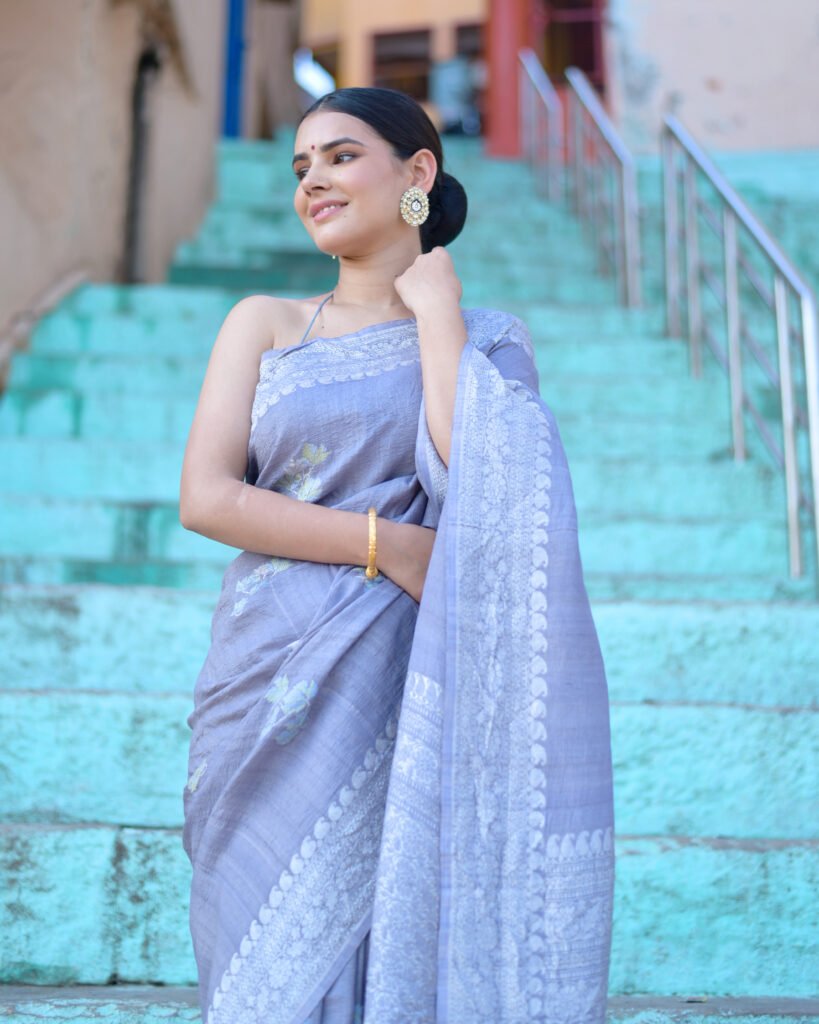
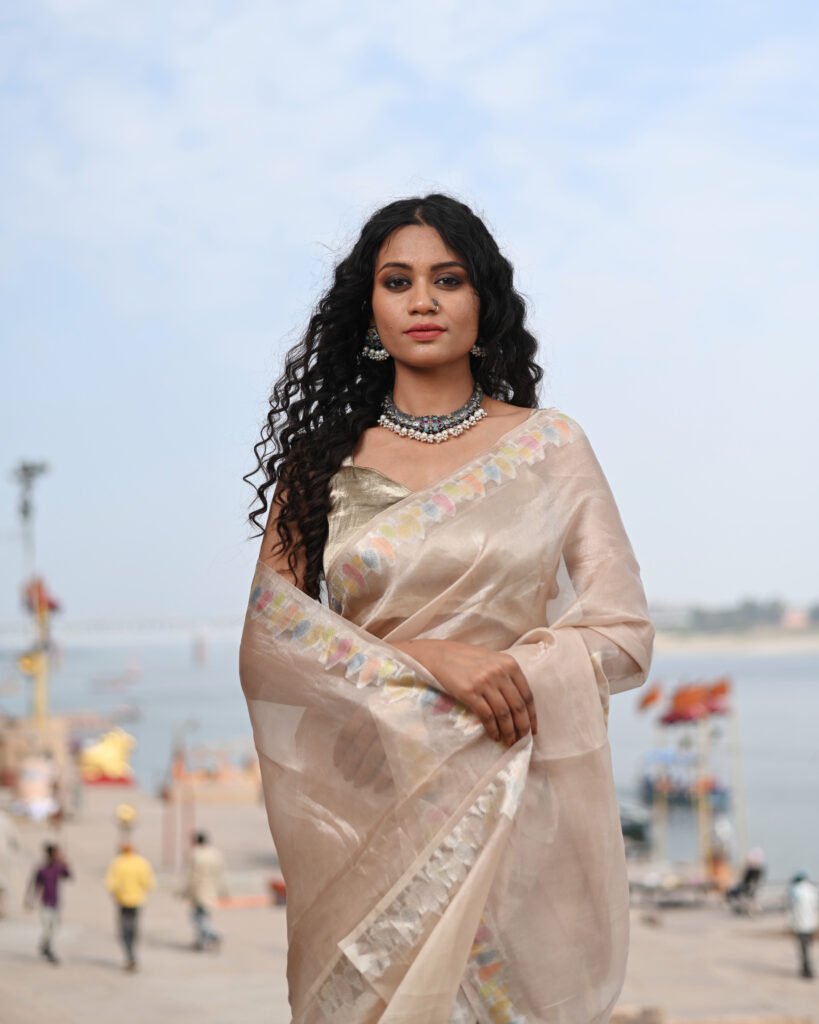
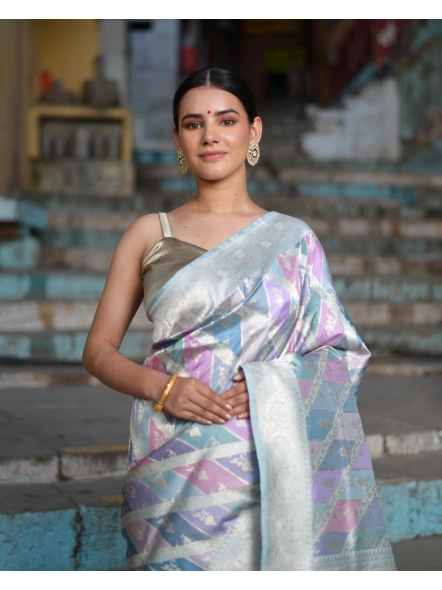
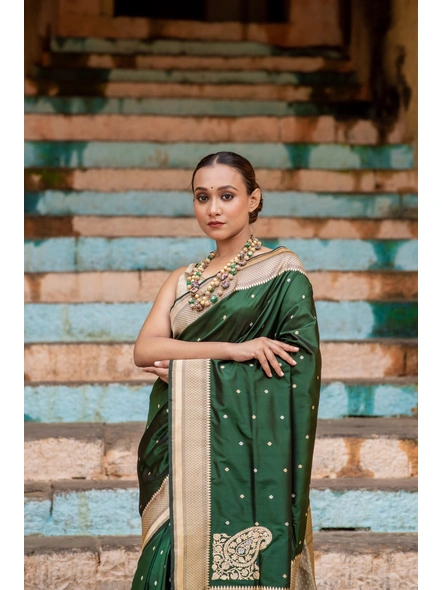




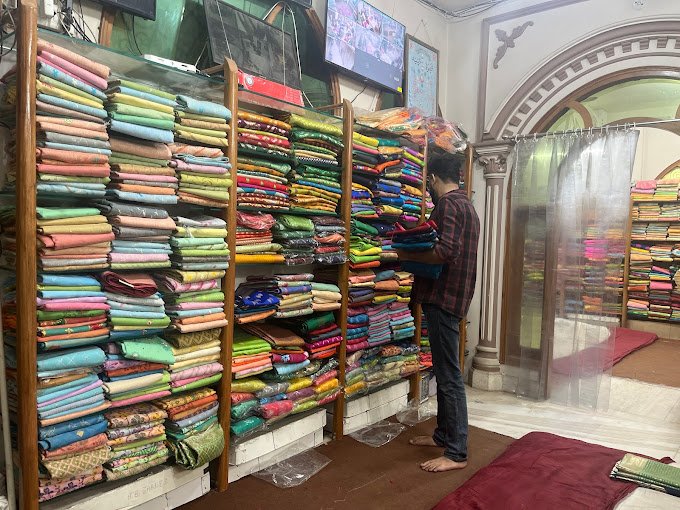
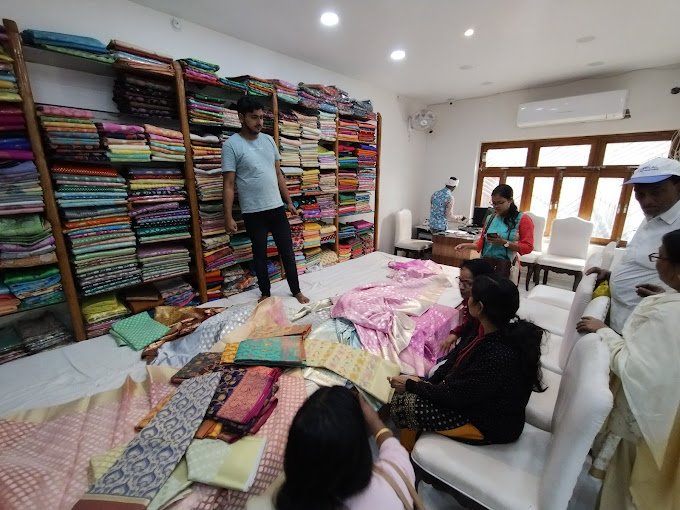
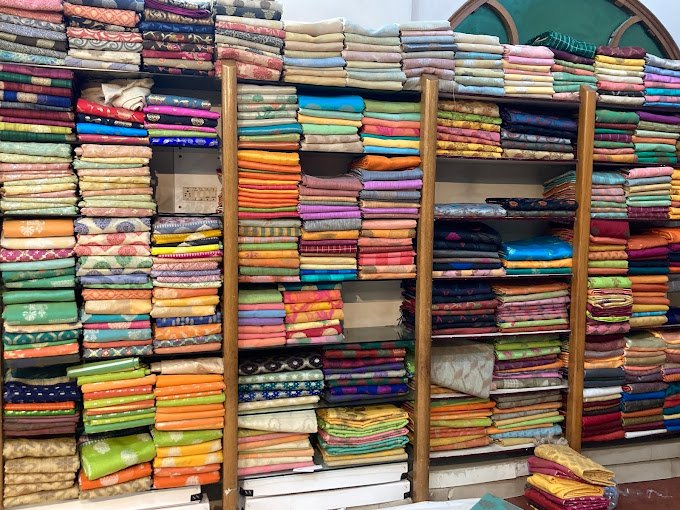
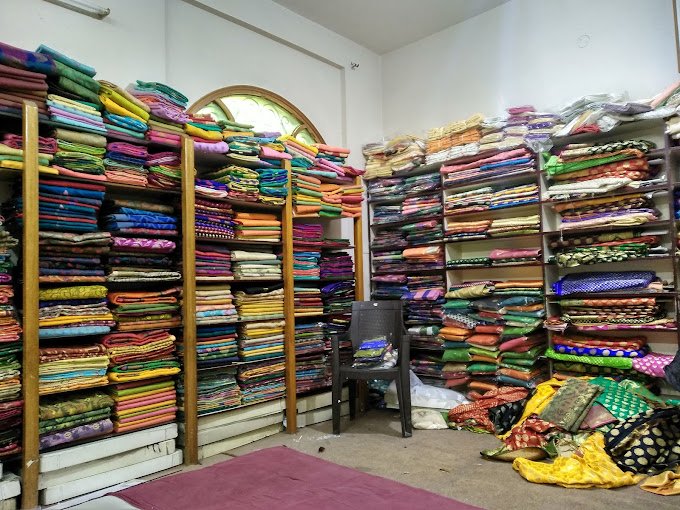
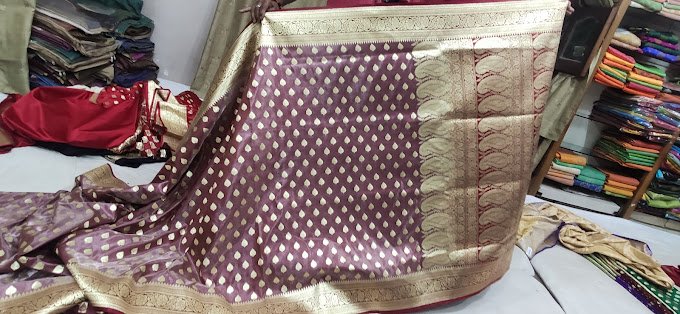
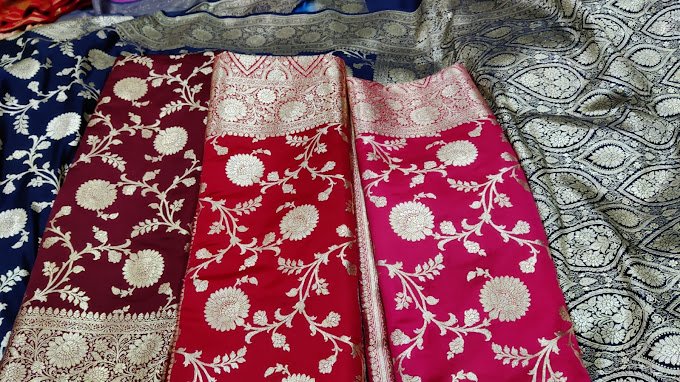
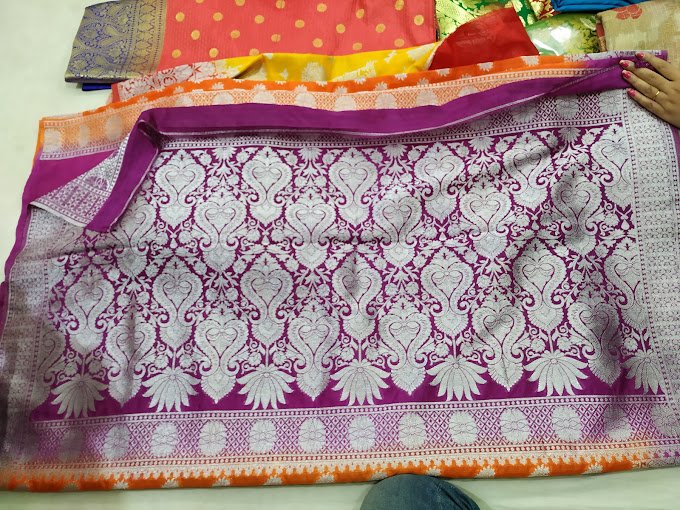
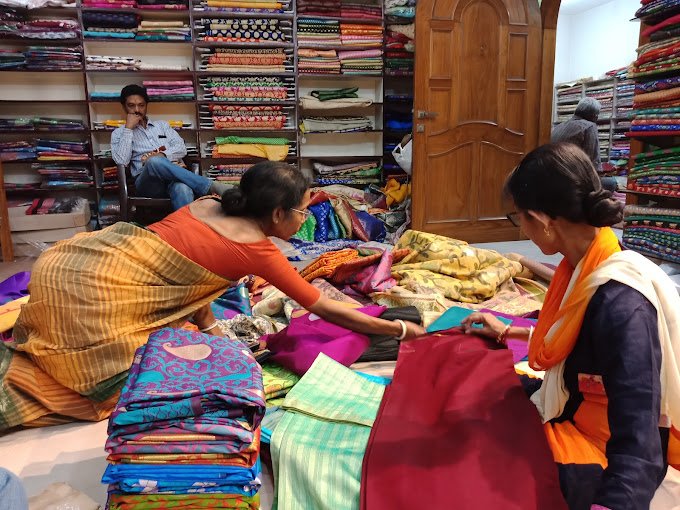
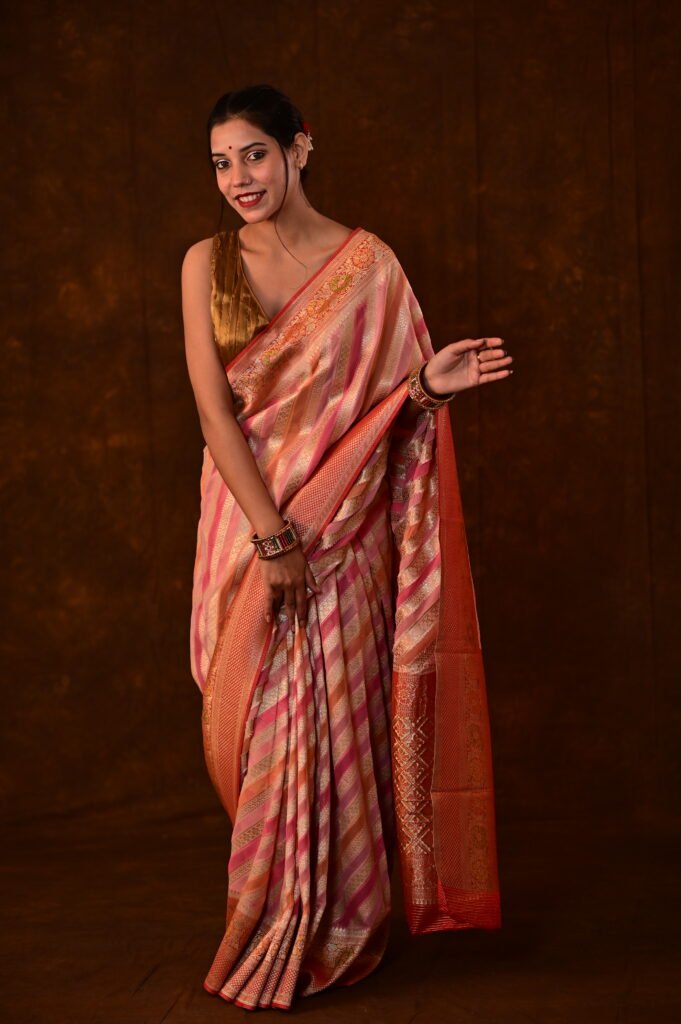
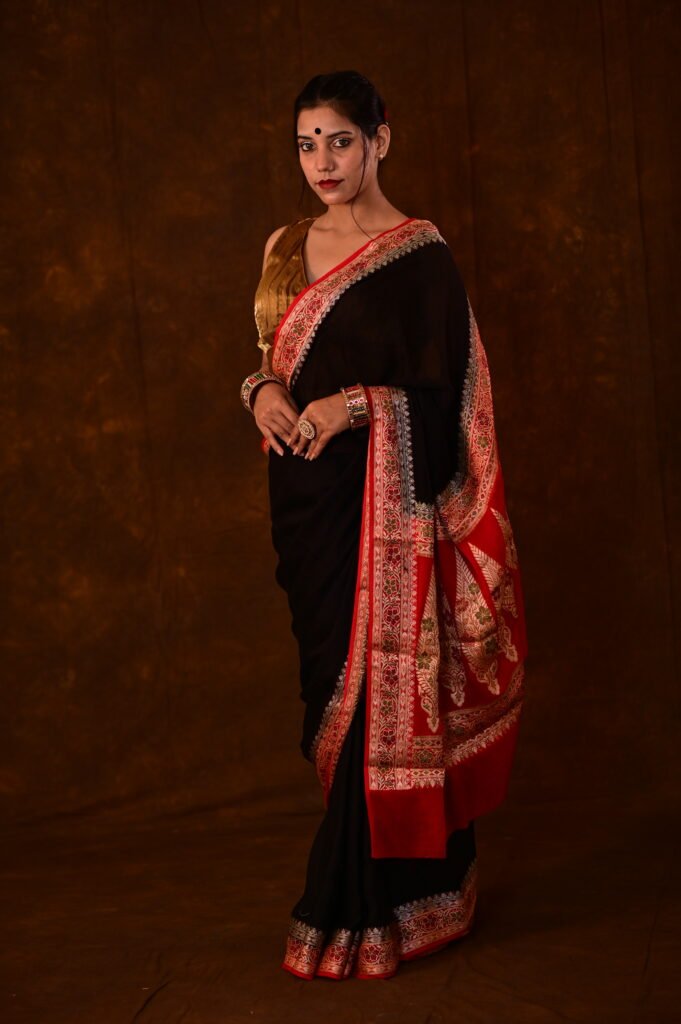
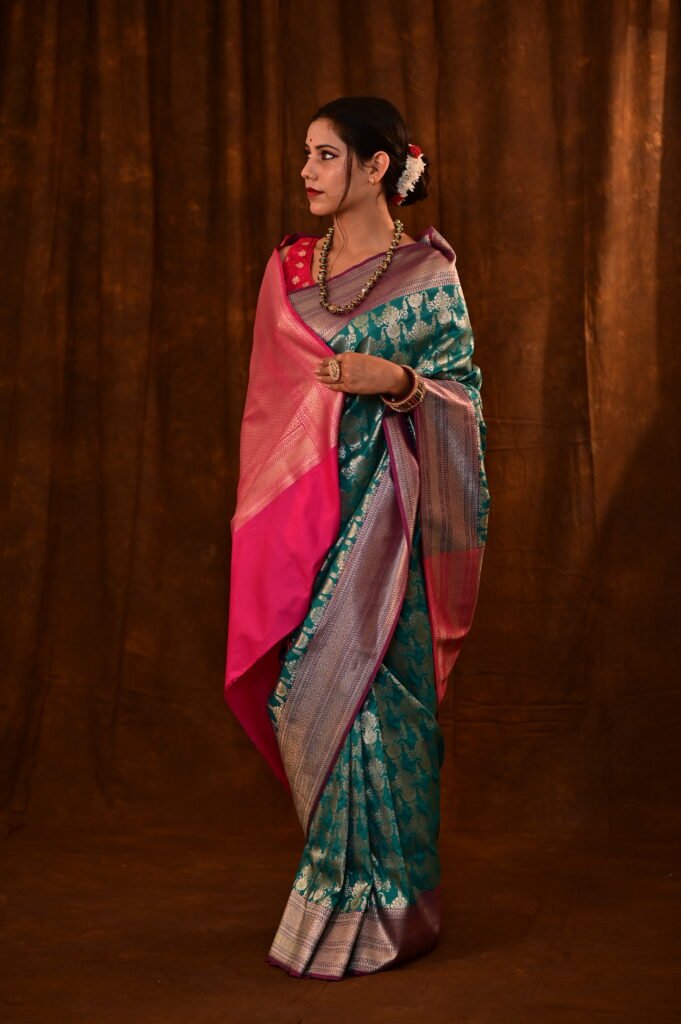
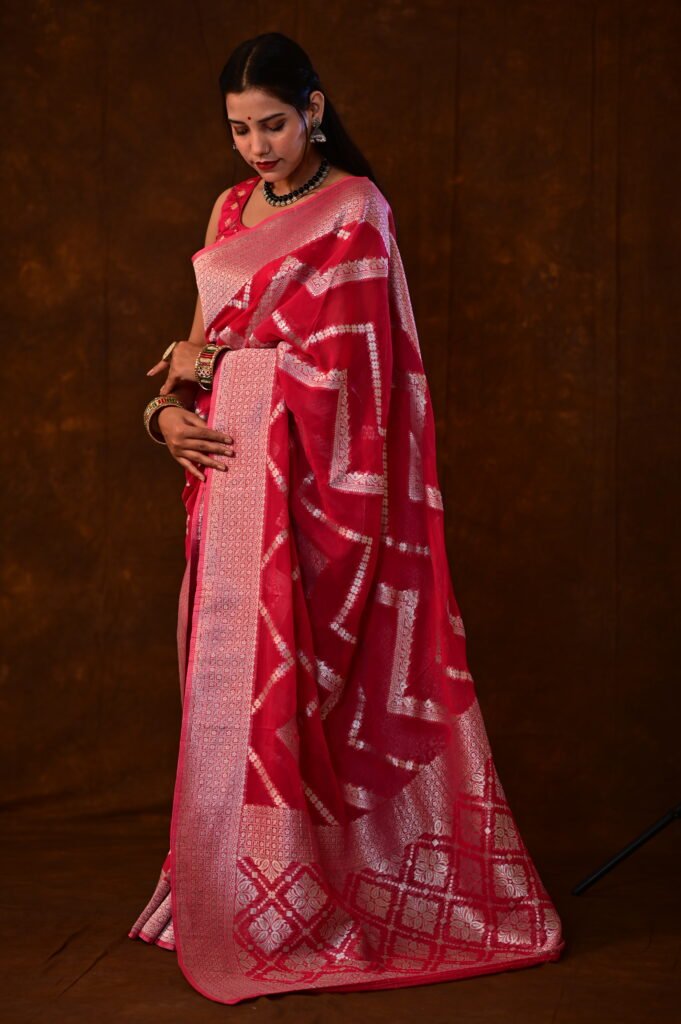
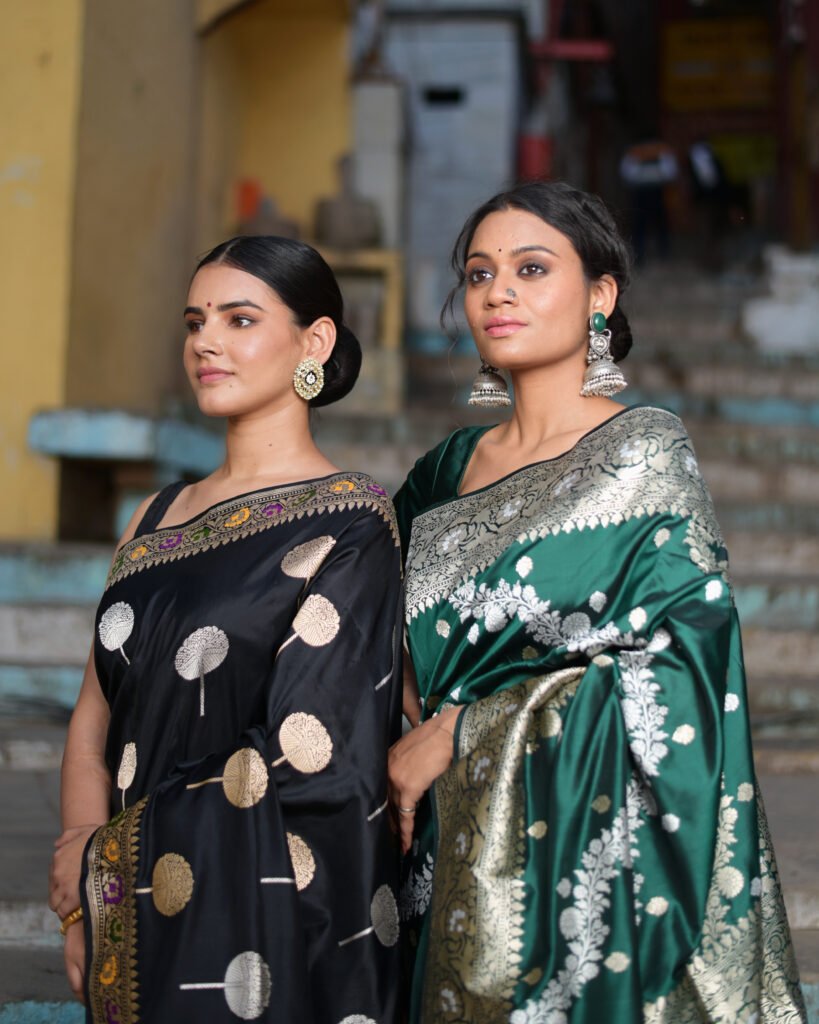

 B.21/212-2K-3, Asfaque Nagar Kamaccha, Varanasi, Uttar Pradesh, India. 221010
B.21/212-2K-3, Asfaque Nagar Kamaccha, Varanasi, Uttar Pradesh, India. 221010 9335332162
9335332162 climaxsaree@gmail.com
climaxsaree@gmail.com